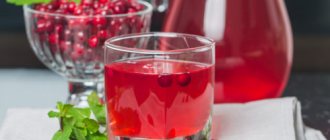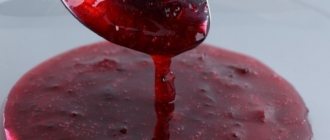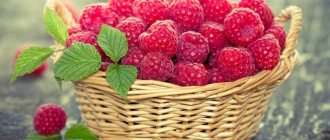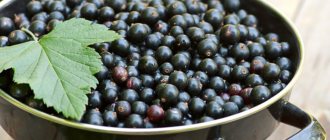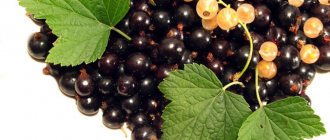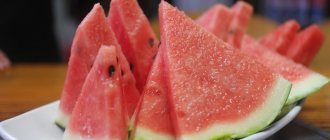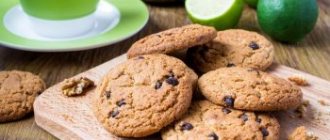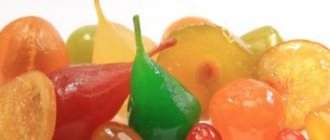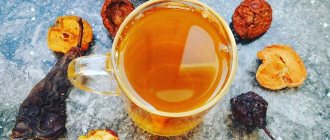Benefits for nursing mothers
The berry is rich in antioxidants, known for their beneficial properties. These include flavonoids, anthocyanins and ellagitannins. Benzoic acid, an important phenolic compound found in cranberries, provides health benefits to nursing mothers.
Cranberry has bactericidal, analgesic, antipyretic, restorative, regenerating and tonic properties. Helps cope with cystitis and fever - common phenomena during the postpartum period.
- Anti-inflammatory properties. The last thing you want while breastfeeding is to get the flu or other seasonal infection. Cranberries and fruit drinks made from them will protect you from diseases thanks to their antibiotic and anti-inflammatory properties.
- Protection against urinary tract infections (UTIs). This problem affects many women, because unlike men, the urethra is located closer to the rectal area, which makes it easier for bacteria to enter the bladder. Symptoms of the disease include burning during urination, pain and frequent urge. UTIs are especially common during and after pregnancy - during breastfeeding. The tannins contained in these northern berries stick to the tiny hairs on the surface of bacterial cells and prevent them from penetrating the walls of the bladder.
- Cranberry juice replenishes fluid reserves. This is an important point because a woman loses a large amount of moisture during milk production. And so that the body does not experience stress due to lack of water, you need to drink a lot. Water is not the most delicious drink. Sour cranberry juice is much tastier.
- Normalizes water-salt balance, thereby helping to maintain a healthy weight.
- Cranberries and drinks made from them (fruit juice, compote or jelly), when consumed regularly, heal the intestinal microflora, suppressing the activity of harmful microorganisms. While the baby is still very small, completely dependent on the mother and requires maximum attention, a woman often forgets or simply does not have time to think about proper nutrition for herself. Quick snacks, irregular routines, untimely meals - all this suppresses the intestinal microflora. As a result, not only the mother’s digestive system suffers, but also the quality of breast milk.
- Removes toxins and “traces” of drugs from the body after long-term therapy, therefore it is suitable for restoring the strength of women who have undergone a difficult pregnancy, including those with drug support.
- The high concentration of antioxidants, vitamins (C, E, PP, group B) and minerals (potassium, magnesium, phosphorus, iron, sodium) in berries reduces the risk of postpartum depression.
What are the benefits of berries
Vitamin C in combination with fruit acids helps eliminate postpartum depression due to a pronounced immunomodulatory effect.
Cranberry for breastfeeding serves as a remedy that replaces standard medications for colds. Fruit juice with berries is eaten as antibacterial therapy.
Cranberry compotes contain iron, potassium, and calcium. The listed elements are necessary for the female body to recover after childbirth.
During pregnancy, many women's gums bleed and blood vessels become weak. Varicose veins appear. Cranberry strengthens blood vessels.
If a woman does not have allergies, she can add cranberries to her diet while breastfeeding. This must be done carefully.
It is enough to eat a few berries to see the reaction in the child. If red spots or itching appear in the baby, dishes with cranberries are excluded from the diet.
Effect on lactation
There is no scientific basis for the positive effect of cranberries on lactation.
Some nursing mothers do not agree with doctors, because they have seen from their own experience the effectiveness of cranberry juice: with regular intake of the drink, their milk supply has noticeably increased.
Doctors explain this by the general strengthening properties of the swamp berry, its beneficial effect on beneficial intestinal microorganisms, as well as general hydration (saturation with liquid) of the female body.
It turns out that lactation can still improve with cranberry juice. But other fruit and berry drinks will give a similar effect, provided they are natural and safe for the child.
Cranberry juice while breastfeeding
Cranberry compote during breastfeeding is a common dish. Let's consider its useful properties:
- Anti-inflammatory effect. Warm berry juice helps with urinary tract diseases. The disease develops after the birth of the child. Antibacterial therapy during breastfeeding through cranberry juice or juice is considered an alternative to standard treatment.
- Thousands of antioxidants in a small berry. Antioxidants prevent the development of malignant tumors in the body. Cranberry juice during breastfeeding has a beneficial effect on a newborn baby: immunity to viral diseases increases.
- Contains flavonoids. They reduce cholesterol in the blood, the walls of blood vessels become more elastic. When consuming compotes and juices, the load on the cardiovascular system is reduced. The risk of developing diseases associated with impaired functioning of the heart muscle is reduced.
- Potassium in the berry ensures oral health. Teeth become stronger, gums stop bleeding. Often, after the birth process, women experience caries. Cranberry juice or juice during breastfeeding can be used as a strengthening substance for enamel.
- Instant elimination of symptoms and signs of viral diseases. People have always used cranberry juices, compotes, juices and tinctures as a natural cure for colds.
- The fat-burning acids in cranberries are useful for nursing mothers whose weight is outside the normal range. Berry drink helps to cope with extra pounds. When cooking compote, you need to avoid adding sugar.
- A huge amount of calcium is passed on to the baby through mother's milk. If there is a lack of calcium, the baby's body becomes weak and bone problems may appear. A woman who is breastfeeding is recommended to drink fruit juice to strengthen her bone tissue and her baby.
- The drink is useful in the presence of peptic ulcers in the stomach. Fruit drink or compote affects the bacteria that caused the development of the disease. Pain and discomfort in the stomach disappear after a few days of periodic consumption of cranberries.
- The high content of vitamin C helps strengthen the immune system. The body is better able to resist various infections and viruses.
A nursing mother can make compote or fruit drink from frozen or fresh cranberries. The main thing is to consume the prepared dish in moderation when breastfeeding.
When, how much and in what form?
Cranberries are a sour berry, and there are few people who want to eat them fresh. It’s much more pleasant to drink a glass of cranberry juice, which is very easy to prepare. But if you like this sour berry with a rich taste, you can eat several pieces a day if your baby is 3 months old.
To treat a urinary tract infection, doctors recommend drinking 250 ml of cranberry juice or fruit drink 3 times a day. But this does not apply to pregnant and breastfeeding women. Cranberry juice during breastfeeding is allowed only in small quantities. But taking it for medicinal purposes is completely prohibited.
Immediately after giving birth, you can start consuming ½-1 tbsp. fruit drink per day (preferably in the morning), while carefully monitoring the baby’s condition. The best time to drink is between main meals. Over time, a woman can increase the amount of fruit drink she drinks to 3 glasses a day. But your pediatrician may advise you to put off cranberries until your baby is 3 months old.
Jam during breastfeeding: which is possible and which is not?
Tips for choosing berries for fruit juice and preparing it during GW
- Any berries are suitable for preparing the drink - fresh or frozen. Their quality is much more important. They should be tight, without signs of damage and without dents.
- You need to add just a little bit of sugar to the fruit drink, just for taste. If you pour a lot of it, it can lead to digestive problems for the baby, and such a drink cannot be called healthy.
- Under no circumstances should you boil the berries - this will destroy all the beneficial compounds in them.
Fruit juice for mothers of newborns is prepared according to the following scheme: pour a glass of sorted berries into a liter of water, add sugar and bring to a boil. Then remove the pan from the heat and allow to cool.
- Chilled fruit juice is simply useful, but when warm, it is better to drink it 20 minutes before breastfeeding. Thus, it will ensure a flow of milk to the breast and enhance lactation.
- In the first month, you can reduce the concentration of berries in the fruit drink - cook at the rate of ½ cup per liter. Such a drink will turn out to be less healthy, but at the same time more gentle in terms of acidity.
- Later, in the second or third month, you can also add other berries to the water. This mixture will make the drink even healthier.
So, now you know whether you can drink cranberry juice while breastfeeding. As you can see, the drink, which at first glance seems potentially dangerous for the baby, in fact turned out to be extremely useful. This decoction is universal and can be used as a complete medicine, or simply as a tasty and healthy addition to the menu of a nursing mother.
Dried cranberries
A handful of dried cranberries in your favorite porridge is a good solution.
Photo: Flickr.com. Author: Emily.
Dried cranberries are also good for health, but during the drying process a significant amount of vitamin C is lost. At the same time, fiber and polyphenolic compounds remain.
Contains too much sugar, which is not very healthy for nursing women and their babies. For comparison: 1 glass of fresh berries contains only 2 g of sugar, while half a glass of dried berries contains 37 g. But in the process of preparing fruit juice, you don’t have to sweeten it additionally.
All store-bought dried fruits contain harmful preservatives that extend the shelf life of the product. The most common and dangerous of them are sulfites. Few children tolerate these substances well, and in case of overdose, many experience problems with digestion and breathing.
Vegetable oils added to prevent berries from sticking together are no less harmful - they quickly become rancid, turning into food hazardous to health.
If you have a choice, make fruit drinks and jellies from fresh or frozen berries, or prepare cranberries for future use by drying them in the oven or household fruit dryer yourself.
Cranberries while breastfeeding
Cranberries can enrich the composition of breast milk with vitamins and minerals, helping the mother recover faster after childbirth.
There is no scientific evidence of the positive effect of the product on the production of breast milk. However, many nursing mothers are convinced that cranberry juice stimulates lactation and promotes milk production. This can be explained by the ability of cranberries to saturate the body with fluid, as well as its rich composition, which has an overall positive effect on the mother’s well-being. True, some other drinks based on fruit juices, herbal infusions, and teas can also have a similar effect. Accordingly, cranberries still help to increase lactation, albeit “indirectly”.
A nursing mother can eat everything she ate during pregnancy :). But if a child has a tendency to allergies, then you need to be careful with all products, that’s all.
Cranberry
https://www.u-mama.ru/forum/kids/0–1/168516/index.html#mid_3987799
drank cranberry juice, ate cranberries in a salad - no reaction
Winnie™
https://www.u-mama.ru/forum/kids/0–1/168516/index.html#mid_3987799
During breastfeeding, it is worth trying carefully all products that are of natural origin, so that the baby develops the enzymes necessary for them; this will make it less likely in the future to be allergic to these products even after directly consuming them)
Maria Happy Mom
https://www.babyblog.ru/community/post/breastfeed/1727291
Beneficial features
Cranberries contain substances that are powerful natural antioxidants - flavonoids, ellagitannins, benzoic acid, anthocyanins and others. These elements help remove toxins and free radicals from the body naturally. Its analgesic, antiviral, regenerating, tonic and other healing properties are also known. Let's take a closer look at them.
- Anti-inflammatory agent. Cranberry can be called a natural antibiotic for its ability to block the activity of pathogenic bacteria. Eating berries during periods of flu and cold epidemics will help prevent infection and quickly cope with the disease if this has already happened.
- Protection against genitourinary system infections. Many women after childbirth and during lactation experience cystitis and other bladder diseases. In this case, there is discomfort and burning during urination, pain in the urethra. Tannins present in cranberries reduce bacterial activity. It is possible to quickly remove them from the body, thanks to the diuretic effect of eating cranberries.
- Provides sufficient fluid volume in the body. During lactation, fluid requirements increase, and cranberry is a product that promotes hydration of cells and tissues.
- Normalizes intestinal microflora. Substances contained in cranberries promote the growth of beneficial bacteria in the stomach and inhibit pathogens.
- Removes toxins and medicinal “traces” from the body. Due to its high content of antioxidants, it helps to quickly remove harmful metals and components of medications taken during pregnancy and after childbirth from the body.
- Helps fight stress. Fruit acids and vitamin C help eliminate postpartum depression, improve mood, and give strength to a nursing mother.
- Cares about beauty. The microelements contained in cranberries are necessary for the health and beautiful appearance of skin, hair, and nails.
- Strengthens teeth. Vitamin C and tannins help fight bleeding gums. Calcium strengthens tooth enamel, and in combination with phosphorus, it is fully absorbed by the body from cranberries.
- Strengthens blood vessels. Cranberry components reduce blood cholesterol levels and prevent the formation of atherosclerotic plaques. Cranberries are used to prevent varicose veins and blood clots.
Contraindications for use
In most cases, cranberries and fruit juice are tolerated by the mother and child without side effects if consumed in moderation. But in rare cases, the product can harm your well-being. Let's study the contraindications to eating cranberries.
- Allergies or food intolerances. If your baby develops a rash, redness on the skin, or changes in stool or colic, cranberries should be excluded from the diet.
- Diseases of the stomach and duodenum. Fruit acids give the fruit a pronounced sour taste with bitterness and become a contraindication to the use of cranberries in case of increased stomach acidity and can aggravate the course of gastric diseases.
- Urolithiasis disease. Cranberries contain oxalates, substances responsible for the formation of kidney and bladder stones. It is not recommended to abuse cranberries if you are prone to such diseases.
- Sensitivity of tooth enamel. A high concentration of fruit acids in this case thins the enamel, making it even more vulnerable.
Contraindications and side effects
The consumption of cranberries and cranberry drinks by a nursing mother is usually well tolerated by both the woman herself and her infant (in 98% of cases it does not cause allergic reactions or side effects). But in certain cases, these products can cause harm.
- Stomach discomfort and diarrhea are quite common with an overdose.
- If you are allergic to blueberries, raspberries or any other plants of the Vaccinium genus of the Heather family, it is better to consult a doctor. Although the cranberry itself is a hypoallergenic berry, despite its bright red color.
- Cranberries contain significant amounts of salicylic acid, a plant analogue of aspirin. Therefore, for people who are allergic to aspirin, the berry and all its derivatives (extracts and other food additives) are contraindicated.
- Cranberry compotes, fruit drinks and jelly contain large amounts of oxalates - substances that are responsible for the formation of calcium stones in the kidneys. In small doses, taking such drinks is safe. But if you drink more than 1 liter of fruit drink per day for a long time, the risks increase significantly.
With inflammation and thinning of the gastric mucosa (atrophic gastritis), as well as with low acidity of gastric juice (another name is hypochlorhydria), cranberry increases the absorption of vitamin B12 by the body.
Contraindications
Even the most useful product has a number of contraindications, in which its use should be minimized or completely eliminated. Regarding the use of cranberry and its derivatives while breastfeeding, the following factors should be considered:
- despite the fact that this berry is one of the least allergenic, you should carefully monitor the baby’s body’s reaction to the introduction of a new product into the diet;
- the berry contains a natural analogue of aspirin, so if you are allergic to this drug, you should stop using it;
- due to its blood thinning properties, it is extremely undesirable to eat cranberries at the same time as taking medications that have a similar effect, as this can lead to uncontrolled bleeding;
- You should use cranberries with caution if you are at risk of developing urolithiasis, as it promotes the rapid growth of stones;
- excessive consumption of berries can negatively affect the functioning of the digestive tract and lead to gastrointestinal disorders and diarrhea in mother and child;
- in the presence of diseases accompanied by increased acidity of gastric juice, it should be taken into account that cranberries increase acidity even more;
- You should not get carried away with cranberry juice during breastfeeding in the presence of hypotension, since the berry itself has the property of lowering blood pressure.
Important! With excessive consumption of the product, even healthy people can experience symptoms of an eating disorder.
Recipe: fruit drink for nursing mothers
You can grind the fruits to extract the juice for making fruit juice manually, using a juicer, blender, or meat grinder.
Cranberry juice is not only healthy, but also a tasty refreshing drink for a nursing mother. It is recommended to prepare it yourself from fresh or frozen berries. Store-bought fruit drinks in packages contain various additives - preservatives, dyes and others, which are undesirable during lactation. In addition, in the recipe for fruit drink for a nursing mother, the concentration of berries is less than usual. Follow the instructions below for making your own fruit juice.
Ingredients:
- fresh or frozen cranberries 1 cup;
- water 2 liters;
- sugar to taste.
Rinse the cranberries in cold running water. Mash the berries with a fork until they become a paste. Squeeze out the cranberry juice using cheesecloth and keep aside. Pour 2 liters of boiling water over the remaining cake, add sugar and bring to a boil. Turn off the stove and leave for 30–60 minutes. Then strain the liquid through a sieve or cheesecloth into a clean container. Add cranberry juice and stir. Cool the fruit drink to the desired temperature and enjoy! Fruit juice should be stored in the refrigerator for no more than 3 days. In addition to fruit drinks, during breastfeeding you can drink compotes and cranberry jelly prepared according to standard recipes. It is only recommended to halve the portion of fresh berries in the recipe. The main advantage of fruit juice is the presence of fresh juice in the composition, which preserves the vitamins from the berries.
How to dry cranberries yourself for consumption during lactation
The safest option for consuming dried cranberries is to dry them yourself. Store-bought berries are often treated with vegetable oil to prevent sticking. In addition, dried cranberries are sometimes treated with preservatives to help them last longer. Such substances can negatively affect the child’s health.
Drying berries at home is quite simple. This can be done using a special electric fruit dryer or in a conventional oven. Sometimes the option of drying cranberries naturally is used, but this process is too long.
With any chosen method, the first step is to sort out the cranberries, removing spoiled ones, and rinse thoroughly under running water.
In an electric dryer, drying takes about 40 hours. In the oven, this process takes 6–7 hours, but at the same time, the berries must first be digested with sugar.
Dried cranberries should be stored in glass containers or bags at room temperature or in the refrigerator.
Beneficial properties of cranberries
- It has anti-inflammatory properties. In this regard, berries help a woman in labor recover in the first days after the birth of a baby, as well as in the future with colds and viral diseases. Cranberry juice is extremely beneficial for breastfeeding. Thanks to its antibiotic and anti-inflammatory properties, the berry improves immunity, and the body fights off diseases.
- It protects the urinary tract from infection. This is a very important function, especially during breastfeeding.
- Cranberry juice is very useful during breastfeeding, as it replenishes fluid reserves in the body of a nursing mother. After all, milk production requires a large amount of water. But since water does not have any taste, cranberry juice will be a good substitute.
- Cranberries in any form help normalize the water-salt balance in the body of a nursing woman, thereby helping to fight excess weight. And every second woman who gives birth to a child has problems with excess body weight.
- Regular consumption of cranberries and drinks made from this berry improves intestinal microflora. Absorbed in caring for their children, young mothers completely forget about themselves. Long intervals between meals, snacks on the go, overeating - all this puts a lot of stress on the intestines. Hence the problems with digestion. This is not only a blow to the mother’s health, but also the reason for the deterioration of the properties of breast milk.
- During a difficult pregnancy, a large amount of medicinal substances enters the woman’s body. Cranberries have the ability to cleanse the body of toxins. In general, this taiga berry is an excellent antidepressant.
How to choose berries
Ripe and fresh cranberries are elastic - when they hit a hard surface, the fruits bounce off like beads. Cranberries intended for nursing mothers must be whole, not wrinkled or blackened.
Often, in late autumn, crops harvested in September and ripened outside their natural growing conditions go on sale. Such berries are sour, larger and softer than later ones, they are quite suitable for consumption. Fresh cranberries can be placed in a jar, filled with cold water and stored in the refrigerator for a long time.
Ripe berries appear after the first frost; they are juicier and sweeter than September ones. The October-November harvest is stored in the freezer in small portions, since when re-freezing the berries lose their beneficial substances.
Frozen cranberries can be bought in the store at any time of the year. Properly frozen fruits fully retain their beneficial properties.
Dried berries lose some of their beneficial properties, in particular vitamin C, but they are also useful as a source of fiber and acids. The sugar content in drying is much higher, but this is easily compensated for if you do not add sugar to the drink. Unfortunately, store-bought dried fruits contain preservatives that may not be beneficial for mother and child. Also, dried fruits are often sprinkled with vegetable oil and they acquire a rancid taste.
